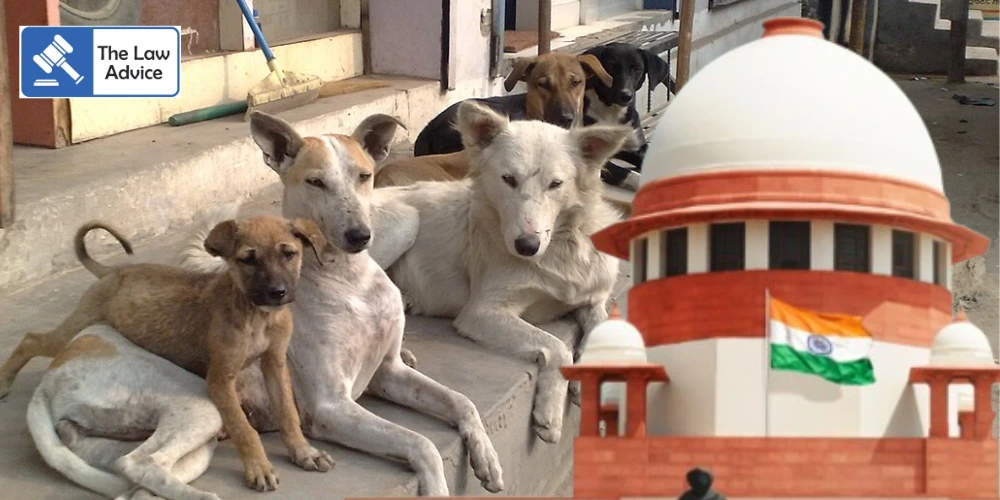
The Supreme Court on Thursday (August 22) modified its earlier directions concerning the treatment of stray dogs in Delhi-NCR, holding that dogs picked up by municipal authorities must not be permanently confined but released back after undergoing sterilisation and immunisation. The Court, however, carved out exceptions for canines that are rabies-infected or exhibit aggressive behaviour, noting that public safety must remain paramount.
A three-judge Bench comprising Justice Vikram Nath, Justice Sandeep Mehta and Justice NV Anjaria stayed the controversial directions passed by a two-judge bench on August 11, which had ordered that no stray dogs picked up from Delhi be released into public spaces.
Clarifying the legal position, the Bench observed that the earlier order conflicted with existing rulings of coordinate benches and with the statutory framework under the Animal Birth Control (ABC) Rules. The Court reaffirmed that sterilisation and immunisation were the guiding principles under the law, not permanent confinement.
The Court further prohibited indiscriminate public feeding of stray dogs and directed authorities to designate dedicated feeding zones to minimise human-animal conflict.
Going beyond the capital region, the Supreme Court widened the ambit of the case and impleaded all States and Union Territories. It also indicated that similar stray dog matters pending before various High Courts would be transferred to the apex court for a uniform, pan-India policy.
“This is not a Delhi-centric issue. Stray dog management is a national concern that affects public health, safety, and animal welfare across the country,” the Bench remarked.
The matter originated when a two-judge bench led by Justice JB Pardiwala and Justice R Mahadevan took suo motu cognisance on July 28 of a news report in The Times of India titled “City hounded by strays and kids pay price.” On August 11, the bench had issued sweeping directions requiring all stray dogs in Delhi to be rounded up and detained in shelters, without release.
The order had mandated immediate establishment of dog shelters capable of housing 5,000 stray dogs within 6–8 weeks, daily record-keeping of captured dogs, creation of helplines to respond to dog-bite complaints within four hours, and warnings of contempt against anyone obstructing municipal drives. It also stressed that infants and children must not fall prey to rabies, directing strict preventive action.
However, several senior lawyers rushed to mention before the Chief Justice of India that the August 11 directions were inconsistent with prior Supreme Court rulings and statutory provisions. Consequently, on August 13, the CJI shifted the matter to a three-judge Bench. On August 14, the new Bench reserved its order, which was pronounced today.
Representation Before Court
The matter has attracted significant attention from both sides of the legal spectrum, with senior lawyers including Kapil Sibal, Dr. Abhishek Manu Singhvi, Siddharth Luthra, Krishnan Venugopal, Colin Gonsalves, Aman Lekhi, Siddharth Dave, and ASG Archana Pathak Dave appearing for different stakeholders, including the Municipal Corporation of Delhi.
In Re: “City Hounded By Strays, Kids Pay Price” | SMW (C) No. 5/2025
Website designed, developed and maintained by webexy